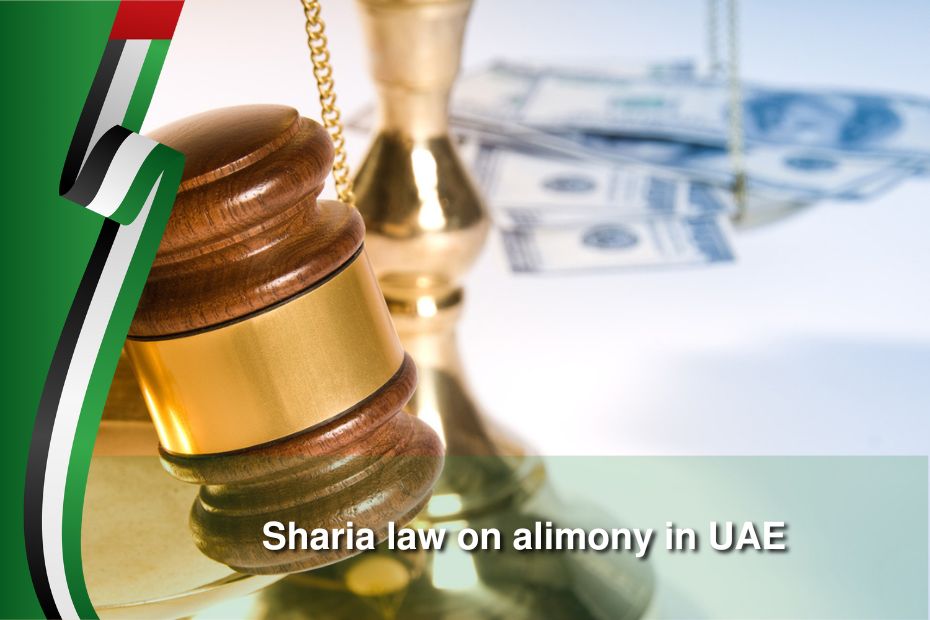This article provides an overview of the Sharia law on alimony in UAE.
It highlights how alimony is defined, estimated, adjusted, and extinguished according to Federal Decree-Law No. (41) of 2024 governs personal status matters in the UAE.
Alimony in the UAE is based on the customs and principles of Sharia law, offering financial support to individuals following certain life events like divorce or separation.
Contact our expert lawyers & legal consultants in UAE. Click the WhatsApp icon below.
Table of Contents
Sharia Law on Alimony in UAE Leglisation
Sharia law in the UAE defines alimony as a right of the individual entitled to it. Alimony covers the necessities of life, such as food, clothing, housing, medical treatment, and education.
Here are the main points to understand about alimony in the UAE:
Definition of Alimony
Under the Personal Status Law, alimony is considered a right for the person entitled to receive it.
This includes not only basic needs but also the standard of living in accordance with the social customs of the region.
Estimation of Alimony
When determining the amount of alimony, the court considers several factors:
- The economic conditions of both the spender and the person receiving support.
- The current financial situation.
- Alimony can be provided in cash or kind (goods or services).
Increasing and Decreasing Alimony
Alimony can be increased or decreased based on changing circumstances.
However, increases are not retroactive for more than six months, and reductions are only effective from the date of the ruling unless the court specifies otherwise.
Continuous and Temporary Alimony
Alimony can be continuous, starting from the case filing, and it takes precedence over all other debts.
In cases of dispute, the court may decide on temporary alimony to support the spouse and children during the legal proceedings.
Maintenance During Waiting Period
A woman is entitled to maintenance during her waiting period after divorce, depending on the circumstances.
Maintenance is mandatory for women during the waiting period following a revocable divorce or for those who are pregnant.
However, after an irrevocable divorce, no maintenance is provided unless the woman is pregnant.
Compensation for Divorced Women
A woman divorced without her request or due to her husband’s actions is entitled to compensation in addition to alimony.
This compensation is generally up to one year’s maintenance and is based on the husband’s financial situation.
Extinguishment of Alimony Rights
The wife’s right to alimony may be extinguished under specific circumstances, including if she denies her husband’s rights or refuses to live with him without a legitimate excuse.
Legal Services Related to Alimony Sharia Law UAE
Our law firm in UAE provides specialized legal services to navigate the complexities of Sharia law on alimony in UAE. Their expertise ensures that clients receive fair and just settlements.
Key Points:
- Alimony Lawyer: Our lawyers are experienced alimony lawyers who understand the intricacies of Sharia law and its application in the UAE. They offer personalized legal advice to secure financial rights for their clients.
- Settlements: The firm assists in negotiating settlements that cover maintenance, child support, and Nafket Motaa. Their goal is to achieve agreements that reflect the client’s best interests.
- Court Representation: Our lawyers represent clients in court to ensure that alimony agreements are legally binding and enforceable and that the legal process is smooth and efficient.
- Comprehensive Services: From initial consultations to final settlements, our lawyers provide comprehensive services, including handling assets, property, and financial rights under Sharia law.
- Legal Guidance: They offer ongoing legal guidance to clients, helping them understand their rights and the legal implications of their cases. This guidance ensures informed decisions throughout the process.
Read about the top family lawyers in Dubai and the best family lawyers for alimony in the UAE. Also, know How Much alimony is in UAE.
FAQs about UAE Alimony in Sharia Law
In conclusion, Sharia law on alimony in the UAE aims to protect women’s financial rights post-divorce.
With the expertise of firms like ours, navigating these laws becomes more manageable, ensuring fair and enforceable settlements.
Contact our law firm in UAE for expert help. Click the Whatsapp icon below.
Omar Al Mansoori is an Emirati legal advisor and researcher with over 10 years of experience in civil, commercial, and corporate law in the UAE. He focuses on simplifying complex legal topics and ensuring that every article published aligns with the latest national legislation and official regulations.
